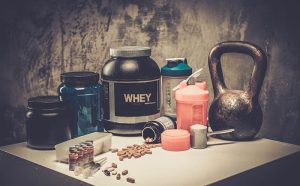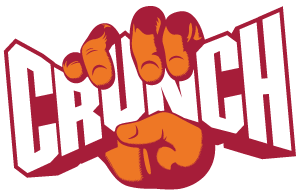
Ever been to the gym and seen folks mixing powder into a drink after their workout? That’s probably a protein shake. These workout supplements have become super popular for people wanting to get the best out of their gym time. But with so much info online, it can be hard to figure out what’s what.
Lucky for you we’ve put together this easy-to-read guide to help you take the guesswork out of what gym supplements I should be taking, best muscle building supplements, specific supplements for weight loss for females and more. It’s paramount to recognize that tailored supplement choices play a critical role in aligning with individual needs and objectives.
For your own benefit, please use this blog post as a guide and seek consultation from a health professional before starting to take any supplements you see listed here.
Whether your goal is to lose weight, gain weight or build muscle – there are a large variety of different workout supplements on the market these days. For someone who is new to a gym, it can be quite confusing and daunting to decide what exact supplement to buy or use.
We also have been lucky enough to work with Amino Z, an Australian fitness, health and nutritional services company, to provide you with the information you see here.
This guide delves into the supplement categories listed below:
SUPPLEMENTS FOR MUSCLE GAIN
Building muscle relies on more than just rigorous training; it necessitates the right nutrients, compounds, and recovery. There are three main muscle gain supplements that standout to cover your bases as foundational gym supplements if your goal is to gain more muscle.
- Complete Protein Powders:
Protein powders specifically whey protein has the highest biological value which means it has all 9 of the amino acids. Amino acids are important for your metabolic process and the storage of all nutrients in the body (such as water, fat, carbohydrates, proteins, minerals, and vitamins).
Because of its biological value it stimulates muscle protein synthesis due to the leucine content which helps aid the muscle recovery process from training which causes tears in your muscle tissues that when repaired grow back thicker, stronger and eventually bigger.
Total protein requirements are going to be dependent on the individual but as a given rule, for people who train aiming for 1.5-2g of protein per kg of bodyweight is sufficient to support muscle growth. Looking at your diet as a whole and addressing whether you get sufficient protein in your daily diet could help you identify the holes in your bucket and plug them with protein powder to ensure you’re giving you the best chance to fill your bucket and get the results you’ve always wanted.
- Creatine:
A naturally occurring compound in the muscles, creatine increases the production of ATP, an energy molecule. This aids in improving workout performance and subsequently, muscle growth. A daily dose of 5g ensures you have full saturation of creatine stores available so it can be utilised in this metabolic process.
- Branched-Chain Amino Acids (BCAAs):
Leucine, isoleucine, and valine, the three essential amino acids in BCAAs, support muscle growth, delay fatigue, and aid in muscle repair. Consuming BCAAs pre, during, or post-workout can be beneficial as leucine is the main stimulating amino acid to start muscle protein synthesis which is where muscle tissue is repaired.
Whether you’re looking to build or tone muscle, taking the correct supplement for muscle gain is vital to getting the results you want.
Because this will be your first time understanding what muscle building supplements do and how to take them, this section of the guide focuses purely on protein powders, which are regarded as the best for muscle gain.
There are many benefits to protein powder. The main benefits are the production of muscles and the repair and healing of muscles. Without the correct amount of protein, your muscles will have trouble healing quickly and this can lead to overtraining the muscles and injury.
Protein powder can be taken pre-workout, during the day or most commonly, post workout. It’s quite a versatile supplement which can be added to a smoothie, pancakes, made into bliss balls or even a protein mug cake!
There are many different options when it comes to protein powder. It all just comes down to your goals and what your preferences are. Here are the most commonly used protein powders for muscle gain below.
Whey protein
What is whey protein?
Whey is a natural byproduct of milk during cheese production made from cow’s milk. When processed, the water, fat and other substances are removed.
The benefits of whey protein:
Whey has the highest biological value which means it has all 9 of the amino acids. Amino acids are important for your metabolic process and for the storage of all nutrients in the body (such as water, fat, carbohydrates, proteins, minerals and vitamins).
Because it has the highest biological value, it’s the best for promoting growth in the muscles. Whey protein helps with faster muscle recovery process and when taken after a workout, it helps with the healing of the tears in your muscle tissues.
When and how should I take whey protein?
Whey protein comes in the form of powder. You can have this in a shake or smoothie. It’s quite versatile and you can really get creative with how you take your protein – you can add it to bliss balls and muffins or even make whey protein pancakes!
Depending on the amount you need to take, consult the supplements label or a health professional. This will depend on your fitness goals.
Casein Protein Powder
What is casein protein?
Casein is the dominant protein found in milk. Roughly 80% of cow’s milk is casein and the remaining 20% is whey.
Compared to whey, casein is a slow-digesting protein. What this means is that it has little effect on protein synthesis. Casein protein forms a lining in the stomach which results in a steady stream of amino acids to the bloodstream over time. Whey is able to do this same process in 40 minutes whereas Casein takes up to 7 hours.
Benefits of casein protein
- Aids muscle recovery
- Can help with great fat loss. If you’re looking to shed those few kilos down it can help aid with that goal
When and how do I take casein protein?
Usually taken before bed since you require 8 hours of sleep to aid with muscle recovery. It can be taken in either a shake or smoothie form.
Soy Protein Powder
What is soy protein?
Soy protein powder is derived from soy and is a great substitute for animal protein. Soy protein is suitable for people that are vegetarian or vegan, have certain allergies or are lactose intolerant.
Benefits of soy protein
- It contains all the amino acids that are essential to human nutrition
- Helps with improved muscle mass which is great for bodybuilders
- Helps with decreasing body fat
- Improve performance, metabolism and overall health.
When and how do I take soy protein?
You can take this as a normal standard protein such as after a workout. The possibilities are endless in terms of how to take it. The most common forms are smoothies and shakes.
Egg Protein Powder
What is egg protein?
Egg protein is made entirely from egg whites. It is fat free and very high in protein content.
- Benefits of egg protein
- Efficient for bodybuilders to add high quality protein to their diets in the same way that whey or casein protein would do to your body
- It’s a great alternative to whey, casein and whole-milk protein if you have allergies or are lactose intolerant
- Great for those who want to lose weight. It has no carbohydrates or fat content.
- Aids in muscle recovery time post workout
When and how do I take egg protein?
Post workout is the best time to take egg protein. Just like whey or casein, it can be taken in the form of either a shake or smoothie!
Pea Protein Powder
What is pea protein?
Pea protein is made out of our least favourite vegetable, peas! Peas are rich in highly-digestible protein which allows for maximum absorbability.
It has a 98% digestion rate which means the nutrients from pea protein travel more rapidly through the bloodstream and are utilised faster by the muscles and organs.
Benefits of pea protein
- Helps with restoring muscle tissue, as your muscles are exposed to tearing during intense workouts
- Preserves lean muscle mass
- Helps you maintain a high metabolic rate
- Ability to support muscle recovery even when you’re resting
- 100% gluten free and allergen free
When and how should I take pea protein?
It’s best to take pea protein after an intense strength training session which helps recover and repair the muscles.
Rice Protein Powder
What is rice protein powder?
Rice protein powder, as the name suggests, is made out of rice. It’s a plant-based protein which is suitable for vegans and vegetarians. Brown rice is usually used to derive rice protein powder as brown rice can be treated with enzymes that will cause carbohydrates to separate from proteins.
It is known to have a slightly more unpleasant taste than other common protein powders such as whey, casein and soy.
It is commonly mixed with pea protein powder for maximum benefits.
Benefits of rice protein powder
- Packed with antioxidants and nutrients to support weight loss
- Helps speed your metabolism
- Gluten-free and dairy-free
- Easy to digest
When and how do I take rice protein powder?
Perfect in smoothies or shakes, it’s best to take this post workout.
WEIGHT LOSS SUPPLEMENTS
When it comes to weight loss, certain supplements can amplify results when combined with diet and exercise. These main weight loss supplements help you shred the last few kilos to get the results you want.
These supplements work in various ways, the main three functions of weight loss supplements include:
- To reduce your appetite making you feel full
- Reducing absorption such as fat to help reduce your calorie intake
- To help you burn fat through fat burning
Remember that weight loss can only be helped with a healthy diet and regular exercise. Consulting with a health professional is vital to understand your body and making sure you are following the right process suitable to you.
The following weight loss supplements are the most popular among bodybuilders and those whose fitness goals are to lose weight.
Green tea extract (EGCG)
What is Green Tea Extract (EGCG)?
Green tea extract is simply green tea leaves that have been prepared into a supplement form. It’s known to improve heart health, prevent chronic diseases and cancers.
Benefits of Green Tea Extract (EGCG)
- Helps boost fat loss through. This results in a greater energy expenditure and fat oxidation
- Works in a dose-dependant manner, so the more you take, the more benefits you’ll see
When and how do I take Green Tea Extract (EGCG)?
It’s best to have 30-40 mins before working out. You can take a recommended dose of 500-1000 mg of EGCG. It’s commonly available in a capsule form and can be taken with food. It’s not recommended to take green tea extract on an empty stomach.
L-carnitine
What is L-carnitine?
L-carnitine is an amino acid. It’s formed in the liver and kidneys. However, it is also formed elsewhere in the body, mostly in your muscles and the brain.
Through diet, you can source it from meat (it’s the best source and the redder the better!) and other animal products. In terms of plant-based food, you can gain L-carnitine from avocado and soybeans.
There are two types of carnitine: L-carnitine and D-carnitine. L-carnitine is the active form that plays a role in energy metabolism and production.
Benefits of L-carnitine
- One of the best supplements to help speed up weight loss and fat burning
- Helps aid brain function
- Regulates blood sugar
- Prevents muscle damage
- Increases your endurance
When and how do I take L-carnitine?
L-carnitine comes in a capsule, liquid or most commonly, in powder form.
Recommended doses are 1-3g per day with a carbohydrate filled meal. It’s best to take this post-workout or even pre-workout to increase performance and aid in fat loss.
Do consult the supplement label or if you’re really unsure, talk to a health professional.
Pyruvate
What is Pyruvate?
Pyruvate is an organic acid that is involved in the energy production pathways of the body. It comes from glucose (within the body) and can be converted back into carbohydrates or into fatty acids for storage.
It can also be sourced from some foods such as red apples, dark beer, cheese and red wine.
Benefits of Pyruvate.
- It’s an effective supplement for fat loss
- Fantastic for energy and endurance for athletes who constantly need sufficient energy for exercise.
When and how should I take Pyruvate?
Pyruvate is purchased in capsule form. You can take the lowest effective dose which is 6-12g. For weight optimal fat loss you can take 20-50g of pyruvate daily. There is no time limit on when to take the supplement.
That being said, gym supplements aren’t a magic pill for success when it comes to achieving weight loss success, ensuring you are maintaining a caloric deficit over time is going to be what drives the result combined with a predominantly whole food diet, good hydration, sleep and day to day movement and activity.
IMMUNE FUNCTION
It’s important to take an immunity boosting supplement so that you can stay healthy and be able to meet your fitness goals without being caught with the cold or other common infectious illnesses.
The following immune supplements are commonly used to keep the immune system in perfect condition.
Echinacea
What is Echinacea?
Echinacea is a perennial plant, which means it lasts for years. It comes from the daisy family and is a popular herb which is commonly taken to help combat flu and colds. It contains alkylamides which has a positive effect on the immune system. In addition, it has a complex mix of active substances which are regarded as being antimicrobial as well.
Benefits of Echinacea
There are many reasons why echinacea is beneficial for people who exercise.
- It has the ability to increase glycoprotein which controls red blood cell production to assist with the wound healing process
- With that in mind, a higher red blood cell count makes it easier for oxygen to be carried to the muscles, enabling athletes to work harder for longer
When and how do I take Echinacea?
You can take echinacea regularly for the benefits it possesses. For working out purposes it’s best to take it with your pre-workout meal or snack, about an hour before you start exercising.
Glucosamine Sulphate
What is Glucosamine Sulfate?
Glucosamine Sulfate is a small and simple molecular building block which is used to repair damage caused by arthritis. It’s a naturally occurring chemical that is found in the human body and it’s the fluid around your joints.
Benefits of Glucosamine Sulfate supplements.
- For bodybuilders and athletes it helps alleviate joint pain by helping to repair and lubricate the cartilage around damaged or overworked joints.
- The body quickly absorbs glucosamine sulphate quickly and efficiently when ingested.
- If you’re someone who does a lot of weight training and have a tendency to overuse certain joints, glucosamine sulphate can help regain cushioning and protect the cartilage around the joints
When and how do I take Glucosamine Sulfate supplements.
Usually in the form of capsules, you can take 500mg three times a day to be effective. It can also be taken with or without meals.
Probiotics
What are probiotics?
Your body is actually full of bacteria, both good and bad. You need both of these types to keep your gut healthy.
Probiotics are the live bacteria and yeasts that live in your body and that are good for your overall well being. They are very important for the health of your digestive system.
Benefits of probiotic supplements for exercise.
- Enhanced immune functioning due to increase of good bacteria in the system after dosage
- Helps with reduced muscle damage and aids in muscle recovery which is great for those who weight train
When and how do I take probiotics?
Probiotic supplements come in the form of capsules and as a liquid. It’s best to follow the label’s recommendations and the best time to take them is when it’s most convenient for you.
Usually, you would store probiotics in the fridge to keep the bacteria in the supplements ‘active’. If they are exposed to extreme heat this can kill the bacteria and there would be no benefits in taking them.
VITAMIN SUPPLEMENTS
The reason why vitamin supplements should be considered a part of your diet when exercising or bodybuilding is to help cover any deficiencies you have in your body. If you lack certain vitamins or minerals in your body this can affect your maximum physical performance and more importantly, your overall health.
The following vitamins are the top three that we think should be incorporated in your lifestyle.
Vitamin E supplements
Benefits of Vitamin E for exercise and bodybuilding
- Vitamin E is an antioxidant which is important for muscle growth
- It’s great for muscle recovery. Following an intense workout, free radicals can wreak havoc on your muscles which results in tearing
When and how do I take Vitamin E supplements?
The best form of Vitamin E is in a capsule and you can take this before or after a workout. If you take it post-workout it can dramatically decrease the free radicals which means a quicker recovery for your body.
Vitamin C supplements
Benefits of Vitamin C for exercise and bodybuilding
- An overall essential vitamin to the human body that protects your immune system
- It’s an important vitamin to take not only for bodybuilders or athletes but for everyone
- It’s one of the safest vitamins you can take on a daily basis
- For bodybuilders it can help recover your body from an intense workout
- For males, Vitamin C will keep testosterone levels high. It does this by supporting a lower ratio of cortisol in testosterone. It will also help the body keep up with the top level of performance that is required on a daily basis.
How and when do I take Vitamin C supplements?
It’s best to follow the recommended dosage on the supplement label.
MENTAL FUNCTION SUPPLEMENTS
Mental functioning supplements help with your mood, sleep and your focus on day-to-day life. These supplements help your body rest and recover so you can perform your best at the gym and also in your everyday life.
Here are the top two supplements that are commonly used amongst gym goers and bodybuilders for a sharp mind and a restful sleep.
L-theanine
What is the L-theanine supplement?
L-theanine is an amino acid that is found in tea leaves. Not only is it commonly sourced from tea leaves but can also be found in some types of mushrooms. L-theanine promotes relaxation which in turn facilitates sleep. This is vital for resting your body after an intense workout session, especially weight training.
Benefits of L-theanine supplements
- Promoting sleep: This is the main benefit of L-theanine. It has the ability to increase relaxation and lower stress in the body. It will help you fall asleep quickly and easily. It may also be able to improve the quality of your sleep.
- Enhances focus and memory: When your body is under stress it increases the production of certain hormones including cortisol and corticosterone. These hormone changes can hinder regular brain activity like memory formation and learning. L-theanine will help lower these levels of stress and avoid interfering with your memory, focus and learning.
When and how do I take L-theanine supplements?
Consult with a health professional to get the suitable dosage requirements for your body.
L-Tryptophan supplements
What are L-Tryptophan supplements?
L-tryptophan is an amino acid that is found in foods such as cheese, meat, yoghurt, eggs and fish. When consumed, it is converted into a B vitamin called niacin. Niacin plays a key role in creating serotonin, which is a neurotransmitter associated with sleep and melatonin levels (your melatonin levels are what control your sleep cycles).
L-tryptophan is a supplement which aids with sleep and helps you fall asleep quicker.
Benefits of L-Tryptophan supplements
- It can improve the quality of your sleep: A lack of sleep can prevent your body from recovering and this can affect how you perform the next day either at the gym or work.
- Helps lift your mood: It’s found to be a natural mood lifter. L-Tryptophan converts to a calming serotonin in the brain and therefore helps make other amino acids in the body available, which leads to a reduction in stress
TAILORING SUPPLEMENTS TO YOUR GYM ROUTINE
Not all exercises demand the same nutrients. For instance, endurance athletes might benefit more from beetroot juice (for nitric oxide) than weightlifters. Key considerations include:
- Determining your core fitness goal: bulking, toning, stamina enhancement, or something else.
- Recognising the specific demands of your chosen gym activities: strength training, cardio, flexibility exercises, etc.
Choosing Quality Supplements
Navigating the labyrinthine world of supplements can be daunting. With the market flooded with countless products, each claiming to be the best, how does one separate the wheat from the chaff? Making an informed decision is not just about efficacy but also safety. Here’s a more in-depth guide:
Research the Brand:
- Track Record: opt for brands that have been in the market for a substantial duration and have a history of satisfied customers.
- Transparency: Some brands provide detailed information about the sourcing of their ingredients, manufacturing processes, and even third-party testing results. This transparency can be a good indicator of quality.
Inspect the Label:
- Active Ingredients: Ensure the primary ingredients you’re seeking are listed at the top and in adequate amounts.
- Fillers and Binders: Avoid supplements with excessive fillers, artificial colours, and questionable additives. Common fillers include magnesium stearate, silica, and titanium dioxide.
- Allergens: Ensure the product doesn’t contain potential allergens, especially if you’re sensitive. Some supplements might contain gluten, dairy, or other common allergens.
Third-party Testing:
- Quality supplements often undergo third-party testing to validate their purity, potency, and safety. Check for certifications from organisations like NSF International, USP (U.S. Pharmacopeia), or Consumer Lab. These certifications can give you peace of mind about the product’s quality.
Check Reviews and Testimonials:
- Genuine customer reviews can offer insights into the effectiveness of the supplement and any potential side effects. While one should be wary of overly positive or promotional reviews, a pattern of consistent feedback can be telling.
Form of Supplement:
- Depending on the ingredient, certain forms can be more bioavailable (easily absorbed) than others. For instance, magnesium citrate is more easily absorbed than magnesium oxide.
Price vs. Quality:
- While it’s tempting to opt for cheaper options, quality often comes at a price. This isn’t to say that the most expensive supplement is the best, but ultra-cheap options might cut corners in production or ingredient quality.
Expiration Dates:
- A good quality supplement will always have a clear expiration or ‘best by’ date, ensuring you’re consuming a product at its peak efficacy.
Claims Too Good to Be True:
- If a supplement promises miraculous results or quick fixes, be sceptical. Real, quality supplements enhance health when combined with a good diet and lifestyle, and they rarely offer overnight transformations.
Consult Professionals:
- Engaging with nutritionists, doctors, or fitness professionals can give personalised advice on what supplements might be best for your individual needs.
Remember, the supplement industry, in many regions, isn’t as stringently regulated as pharmaceuticals. This means the onus often falls on the consumer to make informed decisions. Taking the time to research and validate your choices ensures not only that you get value for your money but also that you prioritise your health and safety.
Enhancing Recovery with Gym Supplements
Your training is only as good as your recovery. Recovery is a pivotal aspect of any fitness regimen. It’s during this time that muscles repair, adapt, and grow stronger. Effective recovery supplementation can augment this process, reduce muscle soreness, and help you get back to the gym faster. Here’s a closer look:
1. Ashwagandha:
Benefits: Classified as an adaptogen, it helps the body combat physical and mental stress. It can enhance muscle recovery by reducing cortisol levels, a stress hormone that can impede recovery.
Recommended Dosing: Typically, 300-500mg of ashwagandha root extract once or twice daily. However, it’s advised to follow manufacturer’s recommendations as potency can vary.
2. Turmeric (Curcumin):
Benefits: Turmeric contains curcumin, a potent anti-inflammatory and antioxidant compound. It can alleviate post-workout inflammation, promoting quicker muscle recovery.
Recommended Dosing: 500-1,000mg of curcumin daily, ideally paired with piperine (black pepper extract) to enhance absorption.
3. Omega-3 Fatty Acids:
Benefits: Omega-3s, especially EPA and DHA, possess anti-inflammatory properties that can hasten muscle repair.
Recommended Dosing 1,000-3,000mg of combined EPA and DHA daily. Sources include fish oil or algal oil supplements.
4. Glutamine:
Benefits: This amino acid aids muscle repair and boosts immune function. After intense workouts, muscle glutamine levels can drop, hence supplementation might expedite recovery.
Recommended Dosing: 5-10g post-workout, ideally on an empty stomach for better absorption.
5. BCAAs (Branched-Chain Amino Acids):
Benefits: Comprising leucine, isoleucine, and valine, BCAAs can promote muscle protein synthesis and reduce muscle soreness.
Recommended Dosing: 5-10g before or after workouts. Some people also take them during their workouts.
6. Magnesium:
Benefits: A mineral involved in over 300 enzymatic reactions in the body, magnesium aids muscle relaxation, energy production, and can help prevent muscle cramps.
Recommended Dosing: 200-400 mg daily, preferably in the evening as it can promote relaxation. Consider magnesium citrate, glycinate, or threonate as they have better absorption rates.
Additional Tips:
Supplement Timing: The timing of supplementation can make a significant difference. While some supplements are best taken pre- or post-workout for recovery benefits, others might be more effective when taken at bedtime.
Combinations: Some supplements work synergistically. For instance, curcumin’s absorption is enhanced when taken with piperine.
Tolerance & Side Effects: Start with a lower dose to gauge your body’s response. If you experience any adverse effects, consult with a healthcare professional.
Consultation: Before starting any new supplement, especially in combination with others, it’s prudent to consult a nutritionist, physician, or fitness professional familiar with supplementation. They can offer guidance tailored to your individual needs and goals.
While recovery supplements can significantly aid in muscle repair and soreness reduction, it’s essential to combine them with other recovery strategies, including adequate sleep, hydration, and a balanced diet.
START SMALL AND LET US HELP YOU ON YOUR FITNESS JOURNEY!
At Crunch Fitness we believe that the best way to reach your health goals is to support and motivate each other, no matter how experienced or not you are!
Our personal trainers are highly equipped with the knowledge and expertise to assist you with the goals you’re aiming to reach!
Get in touch with one of our friendly Crunch staff members and set up with a consultation today. If you have more questions about supplements they certainly can give you the right guidance.


Crunch Fitness Virtual Assistant
 I'd like some help reaching my Fitness goals!
I'd like some help reaching my Fitness goals! I'm an existing member and would like some help!
I'm an existing member and would like some help! I have some questions about becoming a Crunch member!
I have some questions about becoming a Crunch member! AU
AU United States
United States Canada
Canada Costa Rica
Costa Rica Spain
Spain Portugal
Portugal NSW Clubs
NSW Clubs